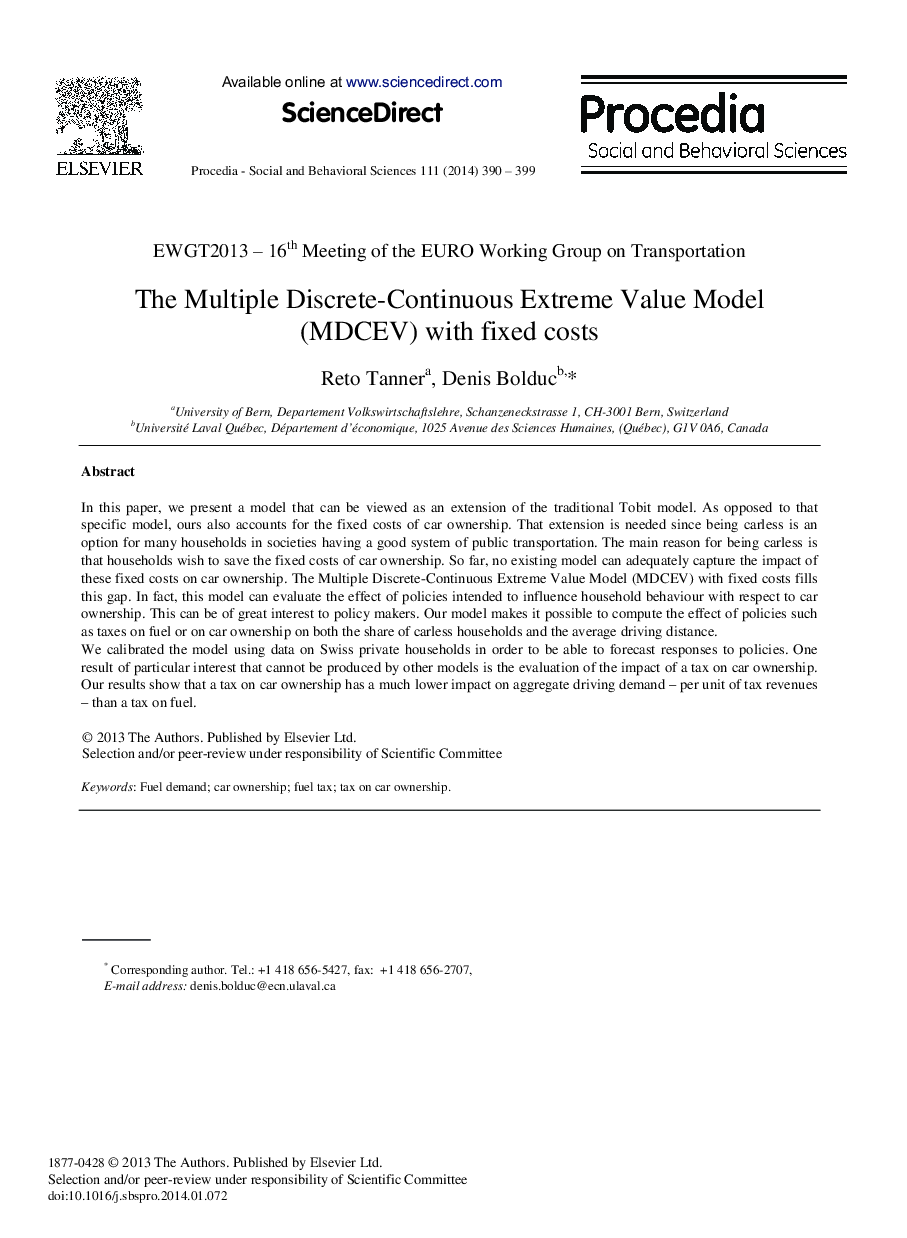| Article ID | Journal | Published Year | Pages | File Type |
|---|---|---|---|---|
| 1115925 | Procedia - Social and Behavioral Sciences | 2014 | 10 Pages |
In this paper, we present a model that can be viewed as an extension of the traditional Tobit model. As opposed to that specific model, ours also accounts for the fixed costs of car ownership. That extension is needed since being carless is an option for many households in societies having a good system of public transportation. The main reason for being carless is that households wish to save the fixed costs of car ownership. So far, no existing model can adequately capture the impact of these fixed costs on car ownership. The Multiple Discrete-Continuous Extreme Value Model (MDCEV) with fixed costs fills this gap. In fact, this model can evaluate the effect of policies intended to influence household behaviour with respect to car ownership. This can be of great interest to policy makers. Our model makes it possible to compute the effect of policies such as taxes on fuel or on car ownership on both the share of carless households and the average driving distance.We calibrated the model using data on Swiss private households in order to be able to forecast responses to policies. One result of particular interest that cannot be produced by other models is the evaluation of the impact of a tax on car ownership. Our results show that a tax on car ownership has a much lower impact on aggregate driving demand – per unit of tax revenues – than a tax on fuel.
